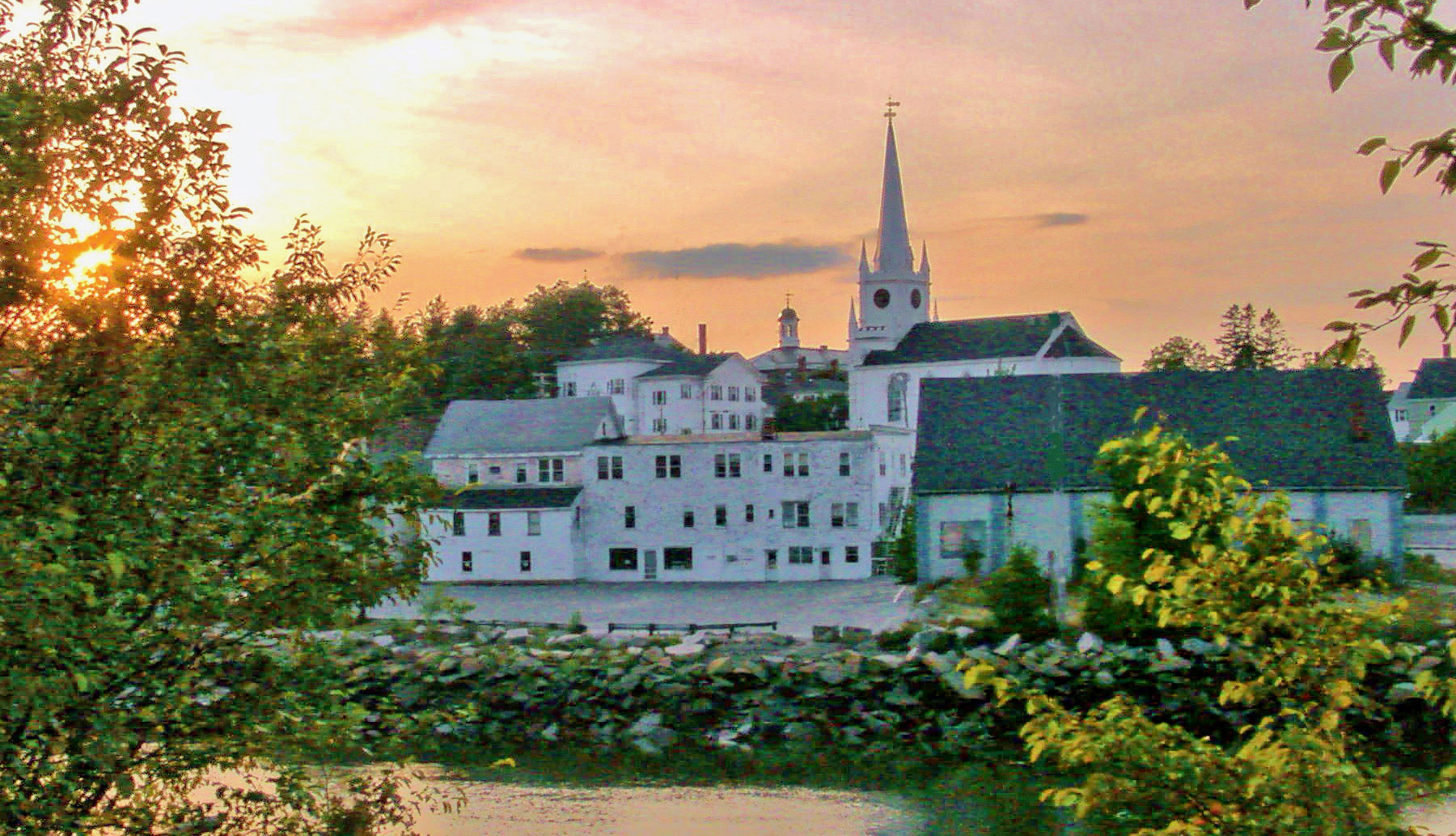Disappearing Villages?

Sunset over the Courthouse and Congregational Church steeples, Machias, Maine
Once, villages were the repositories of cultural values. Families, neighbors, home grown school teachers, community leaders, small churches and their pastors, or other worship centers and their religious leaders were the most important “influencers” in a child’s life. Over time, the number of “influencers” competing for the minds of our children has significantly increased.
The family farm and the one room school house have long vanished in the rear view mirror! Our society has moved from agrarian and industrial phases into a highly paced technological era. Higher educational achievement levels, increased mobility, affluence, highly developed technology, the internet and social media, general acceptance and indoctrination of scientism and humanism, and broader interpretations of freedom of speech have widened and transformed the” village”. Media, celebrity personalities, advertisers, video game producers, college professors, special interest and extremist groups, and powerful politicians wield vast influences over individual and national mindsets. Unfortunately, their motivations are not always altruistic or in line with the common good but include greed, people pleasing, personal political power and status, and the indoctrination of extreme ideologies and twisted moralistic agendas that create a self absorbed divisiveness.
But—it still only takes a small, intentioned, moral community to protect and raise a healthy child. Our true champions of integrity remain unheralded and tucked away in the hamlets and villages and cultural communities spread across our great country. Amidst the humdrum of simple lives, they are the visual and verbal mentors who show how to live beyond themselves and are the ones upon whose shoulders our nation stands. Imperfect but resolute, they are the present day village blacksmiths about whom H. W. Longfellow wrote in “The Village Blacksmith.”
In its entirety, the poem reveals the “smith” to be mighty in spirit as well as body. He worked hard, found meaning in what he did, and was kind and sensitive and brave and purposeful. He loved his family, led them in religious matters, and modeled how to live through life’s tough demands to the children in his town. We would think of him as an upstanding, principled guy, a man of integrity, who displayed his good character in every day living.
“His brow is wet with honest sweat/He earns what’er he can/ And looks the whole world in the face/For he owes not any man…Toiling, — rejoicing, — sorrowing/Onward in life he goes/ Each morning sees some task begin/Each evening sees it close/Something attempted, something done/Has earned his night’s repose…Thanks, thanks to thee, my worthy friend/For the lesson thou has taught! Thus at the flaming forge of life/Our fortunes must be wrought/Thus on its sounding anvil shaped/Each burning deed and thought. (Excerpts from “The Village Blacksmith”)
Even though we tend to believe and behave as though morality is relative to the circumstance, we all have the knowledge of and capacity to do good, to value not just what works for ourselves but what is best for another or for the common good, to contribute in some way to someone else’s physical, emotional, or spiritual wellbeing. We may selfishly ignore or deny the Moral Law, which has existed ever since humanity has. However, it remains intuitive and unchanged.
Unfortunately, that moral standard does present a very uncomfortable problem for us. Sourced in God’s holiness, the Law sets the bar of goodness far beyond our experience or even capability. It demands of us what we can’t do because of our corrupted natures. However righteous we may be in our own eyes and in comparison to others, a brief tally of our personal attitudes and behaviors should easily convince us that we fall short. Our imperfections don’t even register on the scale of holiness defined by selfless love for God and our “neighbors”. Thus, we need forgiveness and redemption and the enablement to progressively learn and live out the grace God freely offers us.
What a wonderful legacy that would be—to be shaped at the “flaming forge of life” by faith into the image which God intended, to be transformed through the “sounding anvil” of the Gospel into loving forgiving, caring, understanding, generous spirits, and to selflessly contribute some “burning deed and thought” to help another person, community, nation, or even the world to know the eternal benefits of the Gospel’s power for redemption, meaning, purpose, and hope.
